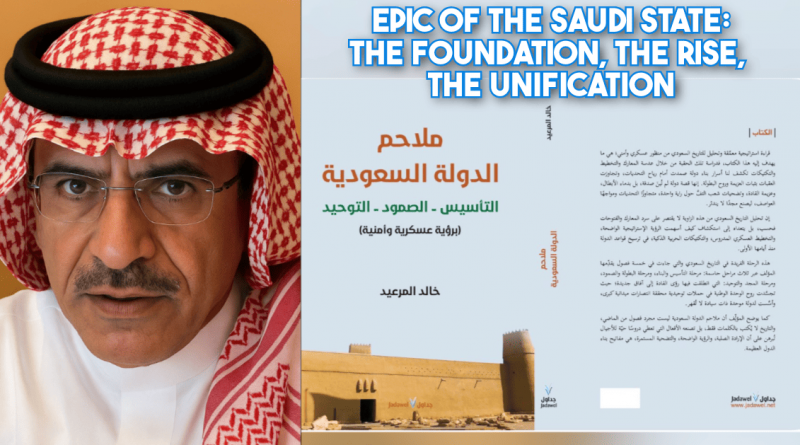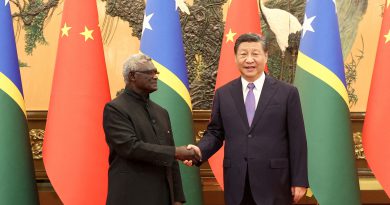Saudi Arabia’s Epic Past Captured in Gen. Khalid Al-Muraid’s Latest Book
Beirut – Lebanon’s Jadawel Publishing House has released a striking new title, ‘Epics of the Saudi State: Foundation – Resilience – Unification’, authored by retired Major General Khalid Al-Mraeed. The 284-page volume offers more than a retelling of events; it provides a sweeping narrative of over three centuries of Saudi history, interpreted through a military and security perspective.
Al-Mraeed, a former senior officer, positions the Saudi state not merely as a political construct but as a project of resilience, forged in the crucible of battles, strategic calculations, and a unifying national identity. He asserts that security and stability were never incidental by-products but deliberate pillars of state-building, enabling the Saudi state to survive internal divisions, deter external threats, and withstand the turbulence of a volatile region.
The book traces the geopolitical conditions that preceded the birth of the First Saudi State, then unfolds an analytical journey through the three historic phases of Saudi nationhood. Each stage, Al-Mraeed argues, embodies a different facet of Saudi resilience and vision—beginning with the establishment of unity, followed by a period of endurance, and culminating in unification and modernization.
Three Phases of Statehood
The First Saudi State (1727–1818) is depicted as a pioneering moment when unity and security were anchored in the fabric of national identity. This foundation gave birth to a political order that could withstand both tribal fragmentation and external opposition.
The Second Saudi State (1824–1891), marked by turbulence and conflict, is characterized in the book as an era of endurance. Despite rifts within and relentless challenges from beyond, the state persevered—demonstrating the tenacity that would later define Saudi resilience.
The Third Saudi State, inaugurated in 1902 with the recapture of Riyadh, is described as the unification era that continues into the present day. Al-Mraeed dedicates an entire chapter to this decisive operation, describing it as a lightning maneuver that reset the trajectory of Saudi history. This phase, he argues, was not only about consolidating territorial control but also about building a modern kingdom rooted in pride, stability, and prosperity under visionary leadership.
Al-Mraeed enriches his account by spotlighting lesser-known aspects of Saudi military heritage. He highlights the contribution of women, citing figures such as Ghaliya Al-Buqmiya, who played critical roles in defense and strategy. He also examines the centrality of horses and camels in traditional warfare, while noting the morale-boosting power of poetry and military displays in shaping Saudi spirit across generations.
A Legacy of Strategy and Resilience
The volume is distinguished by its extensive use of maps, archival records, and rare photographs, making it both an academic resource and a historical narrative. It draws deliberate comparisons between Saudi strategic thought and global military doctrines, underscoring the Kingdom’s philosophy of crisis management and deterrence. Al-Mraeed condenses this approach in a succinct maxim: “Readiness for war creates peace.”
Beyond recounting conflicts, the book dissects the political decisions, security strategies, and tactical innovations that laid the foundation of the Saudi state. In doing so, it moves beyond the conventional telling of wars to reveal how crises were consistently transformed into opportunities for unity and renewal.
Published to coincide with the Kingdom’s 95th National Day, Epics of the Saudi State seeks to remind readers that Saudi Arabia’s endurance was never guaranteed but earned through determination, leadership, and the collective will of its people.
The five chapters of the book—covering the foundation, endurance, ascent, unification, and stability—recount how a unity project grew into a national identity that transcended tribalism and sectarianism, offering instead a model of cohesion and sustainable statehood.
By situating the Saudi story within its broader historical arc, Al-Mraeed emphasizes the interconnectedness of past, present, and future. The Saudi people’s will, determination, and loyalty, he suggests, are not only the legacy of their forefathers but also the enduring keys to maintaining one of the most stable nations in the region.



